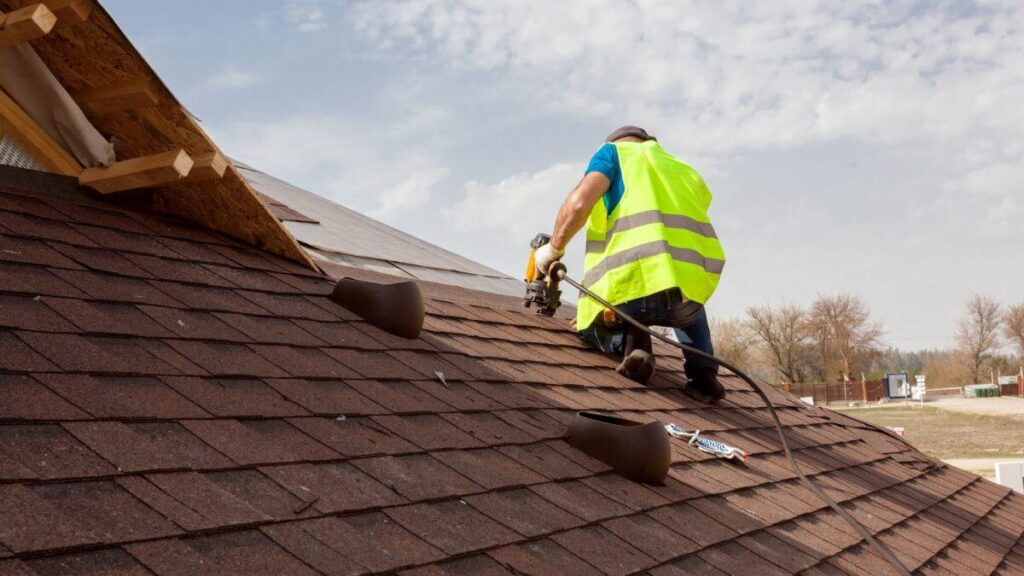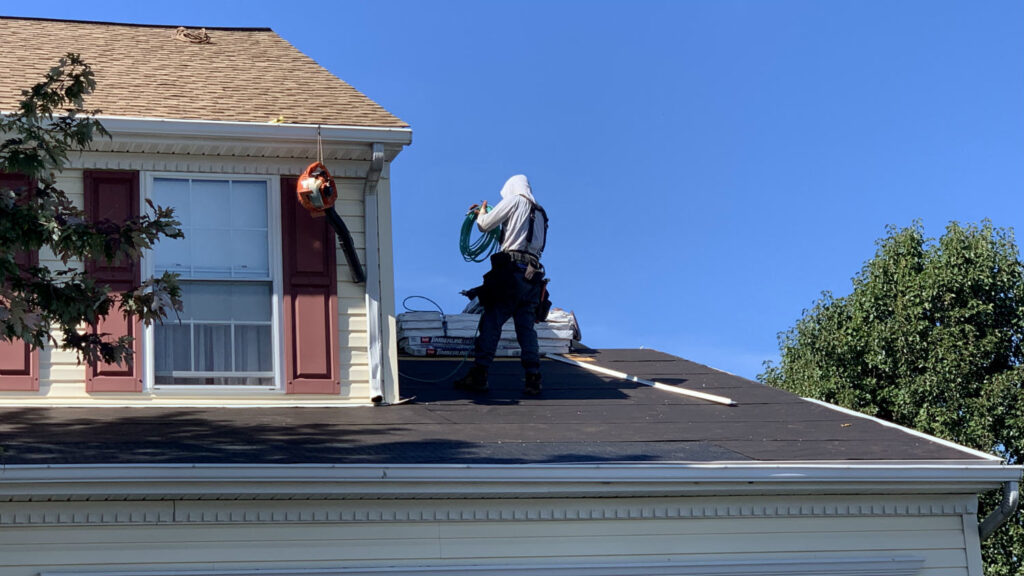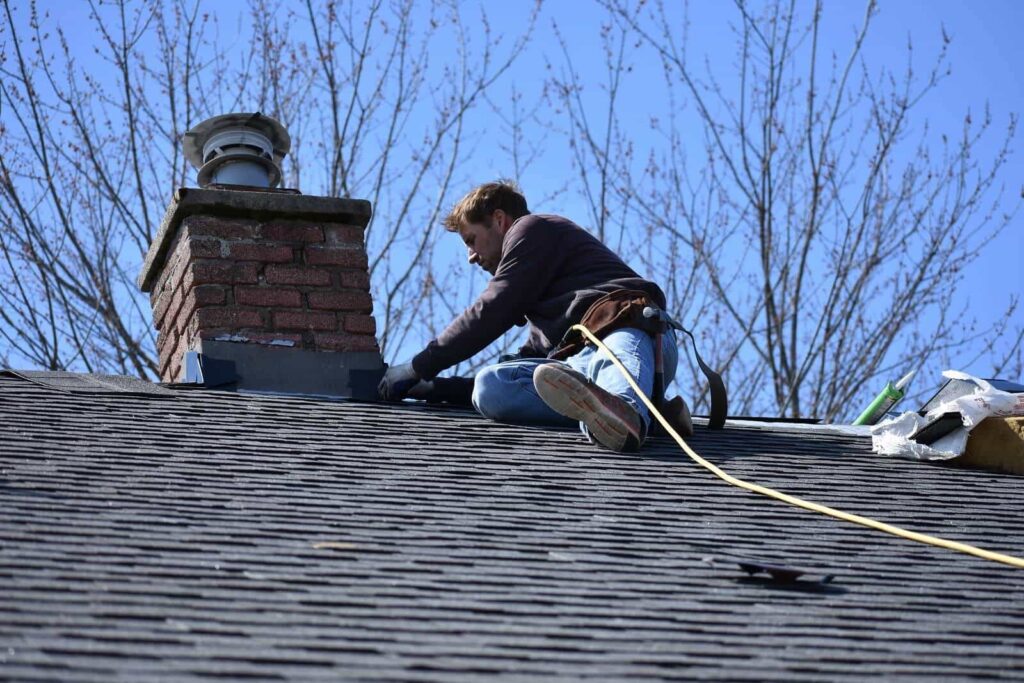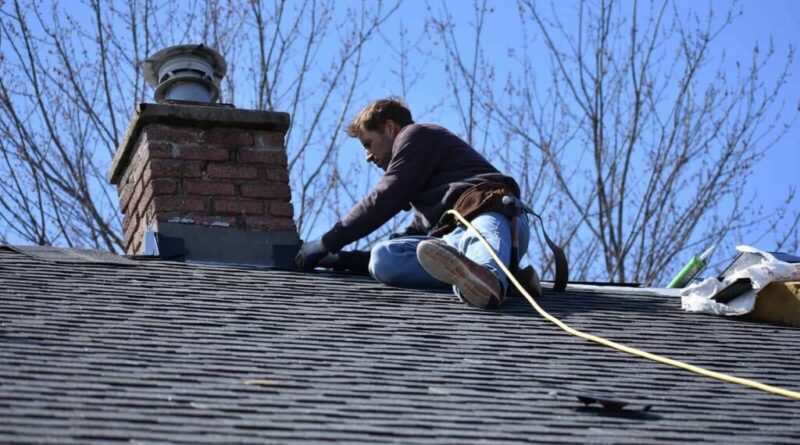When the time comes to hire a professional roofer, a first consideration for many is the cost and when they will pay for it. Should you pay for the entire cost of the roofing estimate up front? Will your contractor offer you payment or financing options? What can you expect for roofing payment terms?
Most of us aren’t experts on the trades, and we don’t often hire roofers, so when to pay can be hard to know. But common sense and a little research can help you figure out what makes sense when it comes to paying contractors.

source: aspenroofingandexteriors.com
Does your boss pay you in advance for two weeks of work? Not typically. Most of us can’t get our paychecks before we put in the time. So why would you pay your contractor in full before work has started? You should never pay a roof contractor 100 percent up front. This gives them less incentive, or no incentive at all, to complete your roof. Any reputable contractor should never ask you to do that. If they do ask for 100 percent payment of the roofing estimate up front, you are smart to choose another contractor instead. Chances are good that such a company is looking to take advantage of you.
While it’s true that no reputable roofing contractor would ask you to pay the full amount up front, it is appropriate for good companies to ask for a small down payment. A down payment shows a roofing contractor that you are serious, that you have the ability to pay them, and that you are a good customer for them to work with as well. It also gives them cash in hand to order the materials for your job. The size and scope of the job along with the roofing materials you choose can all be a factor in how much of a down payment they ask of you. If it’s a smaller roofing company, they may ask you to pay more up front so they can purchase your roofing materials.
When You Need a Roofing Contractor, Beware of Big Down Payments or Prepaying

source: superiorservicespa.com
Sometimes you need a new roof installed simply due to the age of the roof or minor roof damage. Here you have time to consider your options carefully. You can collect detailed proposals from three different roofing contractors and compare their written payment terms—including down payment amounts and timing—and total costs. Then, after diligent research on replacing your roof and careful consideration, you can choose the roofing company proposal with the best payment schedule for your needs and budget.
Other situations can be unexpected, such as roof damage caused by natural disasters. This can create an opportunity for unethical and even predatory businesses to show up looking to make a few quick bucks. After storms in an area, contractors may flood into the area looking for work, but some of them could be scam artists. In a situation where you are already distressed over storm damage to your roof, you might be tempted to accept a lower total offer that requires you to pay the full cost up front.
They may even offer to cover or waive your insurance deductible. It is usually illegal for contractors to waive your deductible, and it often involves insurance fraud. How can they cover your insurance deductible? Well, they usually can’t. Instead, they inflate the total cost they report to your insurance to cover your deductible. Therefore, they are sending fraudulent information to your insurance company. Of course, when you need a roof repaired after a storm, cost can be the main factor in who you hire. Chances are that some out-of-state contractors aren’t intending to complete the repairs. As always, if a price sounds too good to be true, it probably is just that. Instead, check with contractors first to see if they can work with your insurance and wait for them to send your claim check, and be very leery of scam artists in these situations.

source: casandraproperties.com
Imagine an even worse scenario: a roofing company offers to waive your home insurance deductible or offers you a lower cost than the other companies you contacted, but then insists on the full payment up front. Then, once you or your insurance has paid in full, the company disappears before ever starting work. When you try to call to find out why they haven’t started the work, the phone number doesn’t belong to them any longer. They were never a local roofing company to begin with; they flew in from out of state to scam unsuspecting homeowners after a natural disaster. Not only should you refuse to hire these contractors from the start, you should also report them to your state’s licensing body and/or the state attorney general and/or department of commerce.
Hire a Licensed Roofing Company for Peace of Mind
While some states strictly regulate all contractors and many have requirements for roofing contractors to be licensed, bonded, and insured, other states have less regulation. Some states may stipulate a dollar amount or a maximum percentage of the total roofing estimate that contractors can collect as a down payment, while other states may not. Although some states have less regulation of roofing contractors, even then you can check to see if the companies you are considering hiring are members of professional roofing associations or contractors professional associations. If you live in a state that regulates roofing contractors, you may have more recourse if they don’t meet your expectations with the results of your roof project, or if the company fails to fulfill the roofing contract you have signed with them.

source: downriverroofers.com
So, where should you look to find out if your roofing contractor is legitimate? Start with state licensing boards. A good place to begin is the National Association of State Contractors Licensing Agencies, where you can see if your state has payment rules for contractors. Additionally, local authorities such as cities and counties may have their own regulations even if there aren’t state requirements. One place you can search for reputable roofing companies is the National Roofing Contractors Association, which has a membership directory. There is also the Associated General Contractors of America searchable directory. If you do come across a shady roofing company, you should report them. Find your state’s Consumer Protection Office or Attorney General office to report unscrupulous companies who want payment up front for roof work.
Roofing Project Payment Arrangements
So, when should you pay a roofing company? In general, down payments can range anywhere from 10 percent to one third of the total cost of your project. Some companies may allow for monthly installment payment arrangements, while others may want subsequent payments in larger proportions. For example, one company may ask for a 10 percent down payment upon accepting their detailed contract proposal with itemized costs to show you are serious about completing the project. Then, they may ask for one third of the remaining cost when roofing materials are ordered. Finally, they may ask for the last payment upon completion of the roofing project. Another company may ask for 5 percent when signing the contract, but then ask for 50 percent of the total to cover materials as soon as they order them, and the balance upon completion of work. These are just examples, and it can vary by contractor, but the bottom line is that no reputable roofing company will ask for 100 percent up front. Protect yourself and your financial investment by knowing your rights and hiring only honest, reliable, licensed roofing companies that have fair expectations for clients.




